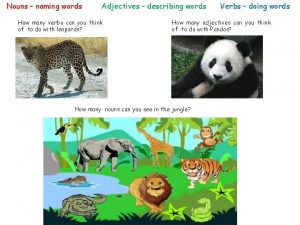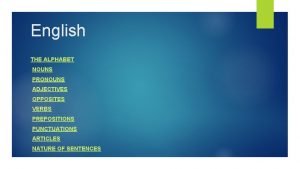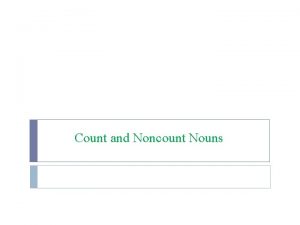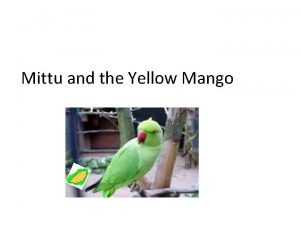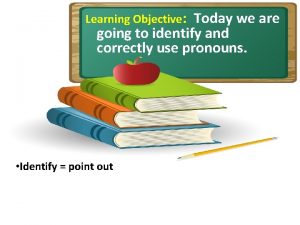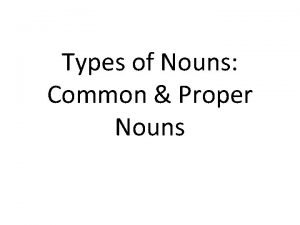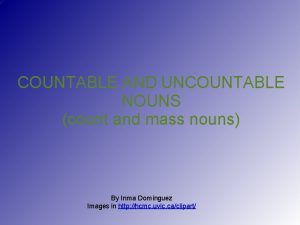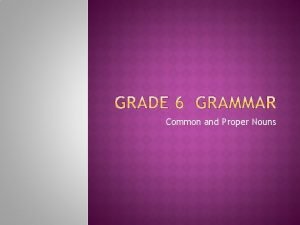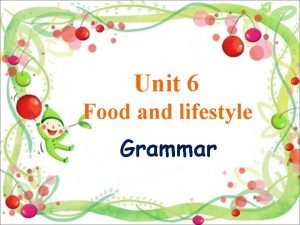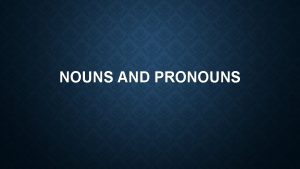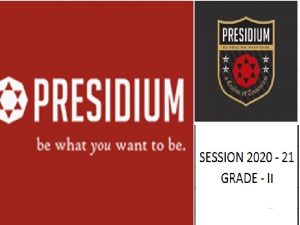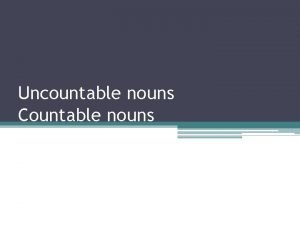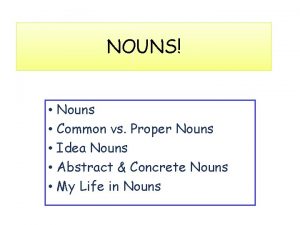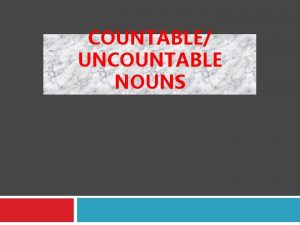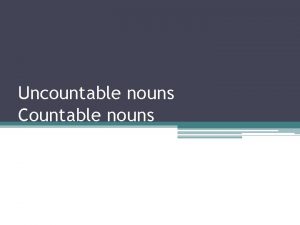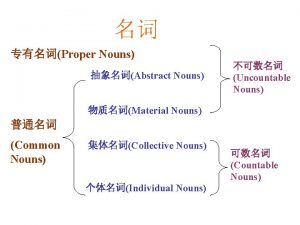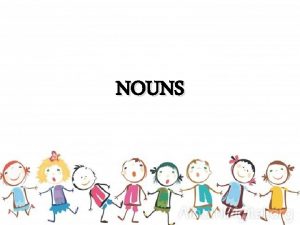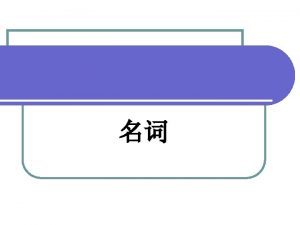What are nouns Nouns are naming words They












- Slides: 12


What are nouns? • • Nouns are naming words. They name people, places and objects. They can also name ideas, emotions, qualities and activities. Here are some examples of nouns: • Peter, Elizabeth, driver, sister, friend. • Los Angeles, Mexicali, Brazil, pen, dog, money. • Love, beauty, industry, nature, greed, pain.

Types of Nouns • All nouns can be divided into common and proper nouns. • Common nouns can then be divided into countable and uncountable nouns. • Both countable and uncountable nouns can then be further divided into concrete and abstract nouns. • On the following slide, we will see how these types relate.

Nouns proper nouns abstract countable common uncountable concrete abstract concrete

Proper Nouns • • • Proper nouns start with capital letters. They are the names of people, places, times, organizations etc. They refer to unique individuals. Most are not found in the dictionary. They often occur in pairs or groups. Examples are on the following slide.

P R O P E R Bic Pen Hillary Clinton Balboa Bark Mrs. Jimenez Christmas Tijuana John President Obama Sony N O U N S Ocean View Boulevard Mississippi River China Coca Cola Bridget Jones France The Ford Motor Company CBS Evening News Queen Elizabeth Saturn

Common Nouns and Countable Nouns • • All nouns which are not proper nouns are common nouns. Examples: cup, art, paper, work, frog, bicycle, atom, family, mind. Common nouns are either countable or uncountable. Use these tests for countable nouns (also known as “count nouns”): Count nouns can be made plural: a tree, two trees; a ma, men; a pony, ponies. In the singular, they may have the article a or an: a sausage; an asterisk. We ask: How many words/pages/chairs? We say: A few minutes/friends/chips?

Non-Count Nouns • Use these tests for uncountable nouns: • Uncountable (or non-count) nouns cannot be made plural. We cannot say: two funs, three advices or five furnitures. • We never use a or an with them. • We ask: How much money/time/milk? (Not How many? ) • We say: A little help/effort. (Not A few. )

Dual Category • • Some nouns may be countable or uncountable, depending on how we use them. We buy a box of chocolates (countable) or a bar of chocolate (uncountable). We ask: How much time? but How many times? (where times = occasions). We sit in front of a television (set) to watch television (broadcasting).

Concrete and Abstract Nouns Concrete nouns are the words that most people think of as nouns. • They are mostly the names of objects and animals (countable) and substances or materials (uncountable). • Cake, oxygen, iron, boy, dog, pen, glass, , earthworm and door are all concrete nouns. Abstract nouns name ideas, feelings and qualities. • Most (not all) are uncountable. • Many are derived from adjectives and verbs and have endings such as –ity, -ness, -ence, and -tion. • They are harder to recognize as nouns than the concrete variety.

Abstract Noun or Adjective? • You won’t confuse abstract nouns with adjectives, as long as you apply a few tests. • Happy is an adjective. It behaves like one: very happy; so happy; happier; as happy as • Happiness behaves like a noun: The happiness I feel; her happiness; great happiness.

Let’s try some! Nouns


